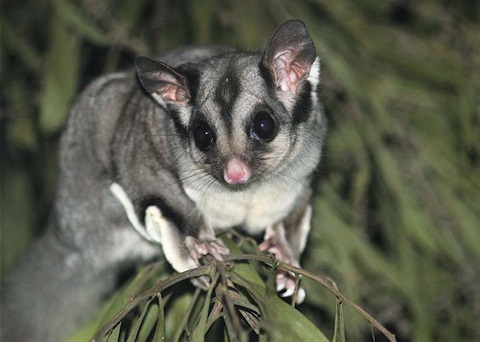Living with Wildlife

Living in urban areas like Monash, we encounter, live, work and play around wildlife all the time!
Monash is home to many wonderful and diverse native wildlife species.
It is important to protect and care for wildlife, by providing habitat, water sources and suitable plants.
Remember that wild animals are not pets and should not treated as such, nor should they be captured or harmed in any way.
There are a number of ways we can avoid being disturbed by wildlife and also avoid harming or affecting wildlife.
Injured Wildlife
If you find injured wildlife like possums or birds, please do not handle them. You can contact Michele Phillips from South Oakleigh Wildlife Shelter on 0411 600 591.
You can also contact Wildlife Victoria on 8400 7300 or visit the Wildlife Victoria website for more information.
Swooping Birds
During spring, birds begin swooping people to protect their nests during breeding season. While swooping birds can be alarming, not all birds display this behaviour.
For more information, please visit our Swooping Birds page.
Bees
There are over 1500 species of native bees in Australia. Bees play an important role in pollination and keeping our environments healthy.
Introduced bees include common species such as Honey or Bumble Bees.
If bees are on private land, contact a bee removalist for help.
If bees are on Council land, please contact us on 9518 3555.
Possums
Possums are Visit the Department of Environment, Land, Water and Planning website. They are protected from harm or capture under the Wildlife Act (1975).
Tree Guards and Collars
If your young indigenous plants are in danger of being eaten, it may be worthwhile protecting them with a staked tree guard until they are established.
Installing a tree guard or possum band on the trunk can protect any trees that are being overgrazed. This usually consists of a piece of sheet iron or Perspex that is wrapped around the trunk of the tree to prevent possums climbing the tree. This should be considered a temporary measure, as once the tree has recovered, the band can be removed.
Read more: Possums (wildlife.vic.gov.au)
Fruit bats (Flying foxes)
You might find fruits bat in fruit trees in your garden but do not touch them, as they may carry disease.
We are lucky enough to have fruit bats (or grey-headed flying foxes) around us in urban areas. Fruit bats play an important role in dispersing seeds and pollinating plants and are critical for keeping our environments healthy.
Grey-headed flying foxes are threatened so if you are lucky enough to see bats in your local area or even having a meal in your fruit trees at night, remember that they won’t harm you and they are playing an important role in keeping the places we live beautiful and healthy. These bats travel great distances over night to feed on fruits, nectar and pollen. They might revisit your garden seasonally, but usually do not stay for long.
It is important to use safe and animal-friendly fruit tree netting on your fruit trees. Nets that you can easily poke fingers through are not safe for wildlife as they easily become entangled and trapped in netting.
Visit Wildlife Victoria for more information on wildlife-safe netting.
Snakes
Snakes tend to hide away from humans as they can be quite scared of us. Snakes are more active in warm weather and are more common to find in bushland areas. Snakes are important parts of our environment and are protected wildlife.
If you see a snake, the best thing to do is leave it alone. If there is a snake on or near your property, do not attempt to move or capture it yourself. The best option is to call DELWP on 136 186 for further advice or to find a local licensed snake controller.
Treat all snake bite incidents as potentially serious. If someone is bitten, dial 000 immediately.
Impacts of Feeding Birds
Monash attracts a variety of birds and animals to open spaces including parks, bushland reserves, road verges and wildlife gardens - please respect the wild nature of birds and keep them healthy by not feeding or handling them.
Find more information here: Impacts of feeding birds.